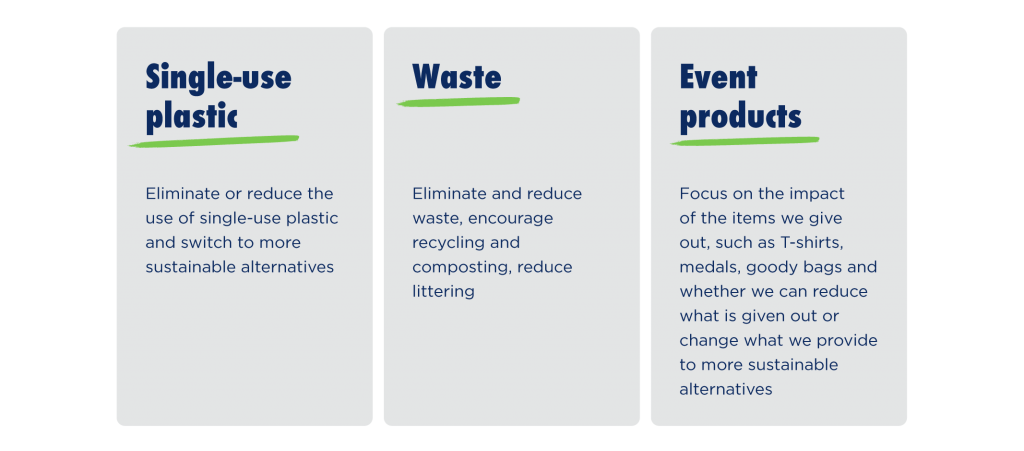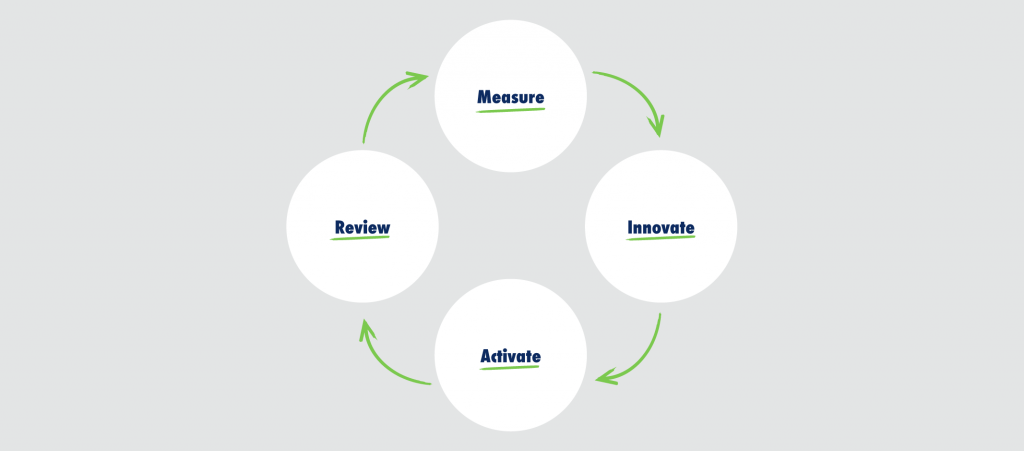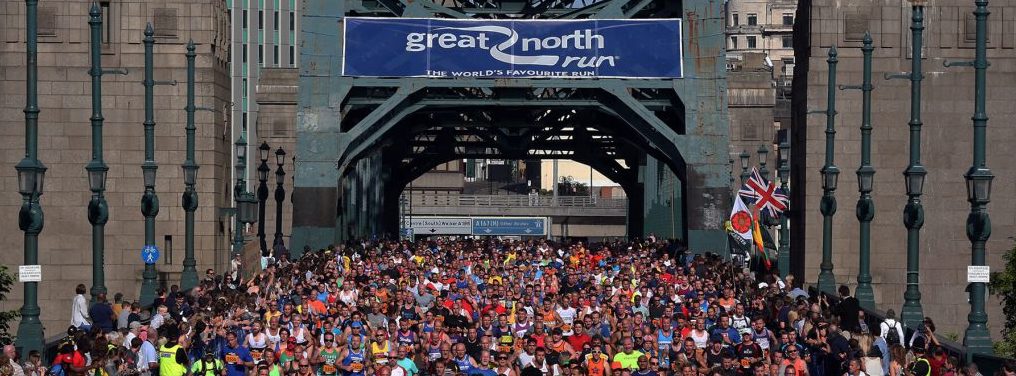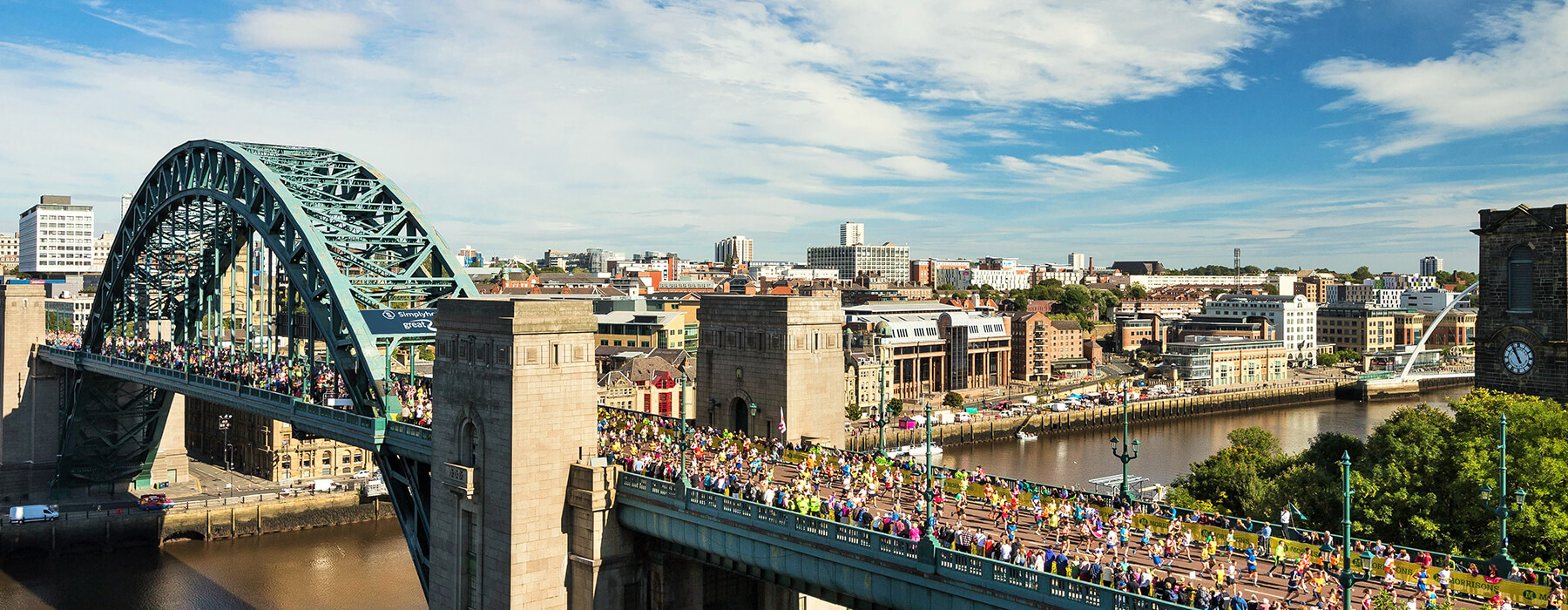1/1
Environmental Reports
Environmental Strategy
Mass participation sport drives fantastic benefits for the individuals who take part, the communities the events take place in, and the charities and causes people run for. However, it is important to acknowledge that they have an environmental impact, and that organisers can do more to minimise that.
At The Great Run Company, we are committing to a new environmental strategy, built from the ground up. Our team, our stakeholders and our runners are rightly demanding more action. That action needs a clear framework, and a strategy to ensure that the efforts that we will undertake are engaged in a way that is meaningful, impactful and has long term sustainability at its heart.
Our ambition has always been to create and deliver the biggest, most compelling events and engaging as many people as possible in them, whether through participating, volunteering or watching our TV coverage. To that ambition, we now add a deep responsibility for our environmental impacts.
This strategy, and the principles and commitments in it, represent the fundamentals of what we will do. We will adapt and develop this strategy, and commit to publishing it, and our annual reports.
As we move towards our 50th Great North Run, it is more important than ever that we understand and minimise our negative environmental effects, so that we can continue to deliver the huge positive impacts that our events are capable of. Going forward, sustainability will be at the heart of our decision making, and our environmental impacts will to be as carefully considered as financial and operational factors. Changing the culture of the organisation to put environmental awareness at the centre of what we do is vital.
Paul Foster
Chief Executive – The Great Run Company
Our Vision
To maximise the positive impact of mass participation events, leaving the lightest footprint, and working with our partners and stakeholders to make our events great for people and planet.
STRATEGIC PRINCIPLES
Environmental sustainability will be at the heart of our decision making. The environmental impacts of any decision will be considered alongside cost and operational factors at all times.
1) We will embed best practice across all our day-to-day activities and adapt policy across the business to reflect this.
2) We will prioritise key actions that deliver the most positive impact. We will define KPIs for success and work to drive these metrics towards ambitious targets.
3) These KPIs will be noted in the Company Objectives on an annual basis. We will deliver a bi-annual performance report to the Board of Directors.
4) We will commit to communicating our performance on this strategy by publishing an annual report detailing our activities and our performance against those KPIs.
5) We will work with and support our partners and suppliers to improve their environmental performance. We will have an ongoing dialogue with stakeholders about environmental issues, to understand their expectations and concerns and to explain our decisions and actions.
6) We will create a cross departmental Sustainability Group, to develop the policies and tactics to deliver this strategy on an ongoing basis.
OUR PRIORITY AREAS
Mass participation events deliver incredible social and economic benefits to host communities and to participants. They also undeniably have multiple – often negative – impacts on the environment.
In line with our principle of prioritising actions that have the most positive impact, we have taken steps to understand which areas of environmental impact are of most importance to our stakeholders.
In Q2 2022 we conducted a Materiality Assessment with our staff, suppliers, partners, host cities and participants – asking them for input and feedback on which environmental issues they consider to be the most important and pressing ones for GRC to focus on. Three clear priority topics came from this research:

The ongoing climate emergency means that we have a duty to understand, measure, reduce and offset our greenhouse gas emissions. This is unquestionably a priority area for us and we will be focussing on this across all of our business operations – not just at our events.
OUR PRIORITY ENVIRONMENTAL FOCUS TOPICS ARE:
- Plastic
- Product
- Waste
- Greenhouse Gas Emissions (across entire business).
OUR APPROACH
We are committed to driving through genuine improvements to our environmental performance and being transparent about our progress. In order to understand whether the actions we are taking are leading to improvements and positive results, we will adopt a 4-stage cyclical process:

Measure
Measurement and data underpin our approach – enabling us to understand the difference our actions are making. We will be methodical and thorough in collecting data relating to environmental performance at each of our events, and as part of our day-to-day operations. We are in the process of establishing baseline data for each of our events so that we have a reference year against which to measure improvements. Once this data is complete we will be able to set challenging targets in each of our priority areas.
Innovate
We know that many of the environmental impacts caused by our events are due to a mindset that “this is how it has always been done.” We are open to trialling new ideas, new processes, new products with different materials in pursuit of improved environmental performance. To some extent we are dependent on new technologies and products coming to market, but there are also opportunities for us to “design out” some of the causes of environmental impact and to help shape the evolution of low-impact mass participation events.
Activate
This is where we put the ideas into practice. The nature of the events industry means that we get a limited number of opportunities every year to try out a new way of doing something. Each event is an opportunity to implement changes and improvements and to see how these impact on operational delivery, participant experience and, ultimately, environmental performance.
Review
Events are over quickly. Months of planning and preparation lead to a few short hours of intense activity. Post-event we will take the time to thoroughly review the actions we have taken to improve environmental performance. We will seek feedback from participants, host communities, suppliers, sponsors and staff. This review process will give us critical data that we will factor in the measurement round that leads on from the review period.
This cyclical process will allow us to constantly monitor the impact of our actions. Some of the initiatives we implement will inevitably work better than others; for those that work well, we will scale them up where possible and roll them out across our entire event portfolio. For those that work less well we will make adjustments where possible and try again on another event. Some initiatives may fail, and we are open to this happening and commit to being transparent about the failures as well as the successes.

WORKING WITH STAKEHOLDERS AND PARTNERS
Working closely with suppliers, sponsors, host cities and charity partners, a small team at The Great Run Company coordinates the coming together of tens of thousands of people at our portfolio of events. We can create the conditions for better environmental performance, but we need the support and buy-in from participants, suppliers, partners and other stakeholders to deliver significant improvements.
We recognise that we have a key role to play in raising awareness of environmental issues – particularly amongst our participants. Our environmental strategy is underpinned by a robust communications plan to ensure that our stakeholders:
- Understand our vision and ambition for environmental sustainability
- Know what we are putting in place to help drive improvement and the rationale for doing so
- Are aware of what they can do to help us achieve our vision
- Have visibility of how our combined actions have contributed to better environmental performance
Our partners and stakeholders also play a vital part in the “review” step of our approach. While GRC can review how well our actions have worked in terms of operational delivery and the impact on the data, we rely on our suppliers, hosts, sponsors, charity partners and participants to give us their feedback on how well the initiative worked for them.
We will involve all our stakeholders in our review process, using a variety of channels to elicit feedback and dialogue on how well the initiatives have worked, and what more can be done.
In addition to our work with event stakeholders we are also part of a mass participation event organisers initiative, MSO, which brings together the major event organisers to collaborate on sustainability issues. This facilitates learning from each other, sharing good practice and developing consistent expectations of suppliers and consistent messaging for participants.
REPORTING & TRANSPARENCY
We are very clear that our environmental programme must focus on genuine improvements in performance and not on any easy wins that could be classed as “greenwash”. We are therefore committing to being transparent about the actions we have taken, and the impacts that these have had through the publishing of an annual report, which we will make available publicly via our website.
We aim to publish this report in Q1 of every year, looking back at the previous year’s events.
Once we have a more complete set of data (which we are gathering during our remaining events in 2024) we will be in a stronger position to set some meaningful targets, against which we can measure performance.
The targets for the next year will be published in each annual report, and progress against these, measured via a defined set of Key Performance Indicators, will be communicated twice a year to the Board of Directors and to the public in the following year’s annual environmental report.
EMBEDDING A SUSTAINABILITY CULTURE
Taking this strategy off the page and into reality is critical to ensuring that real improvements happen. We are taking steps internally to review our decision-making processes – particularly around procurement and operations – to ensure that environmental sustainability considerations are given a high priority.
Key to this is the convening of a cross-departmental group who will champion the implementation of this strategy.
We will report internally on sustainability, present at company meetings, and talk openly and frequently on environmental topics. We will reward success and be open about failure.
The Board of Directors, and the senior leadership of the business, will work to establish and embed a strong sustainability culture across the business.














